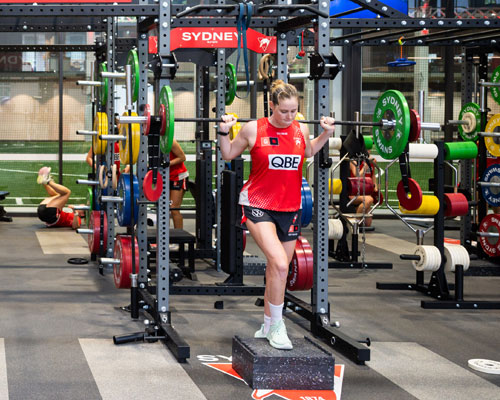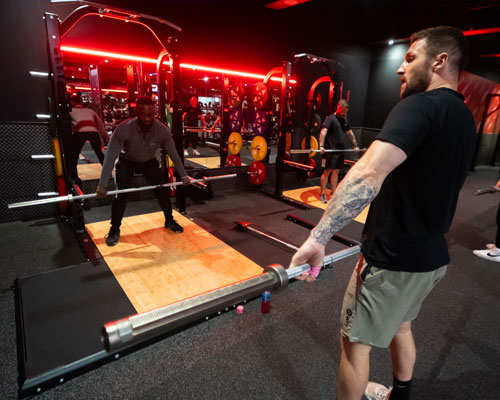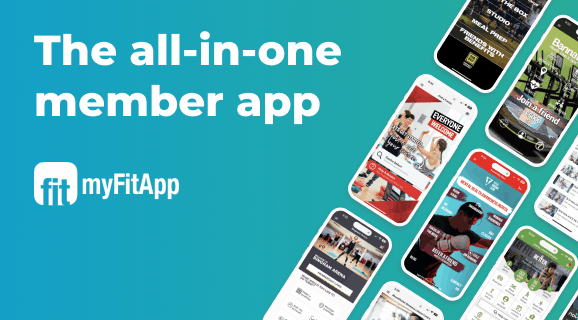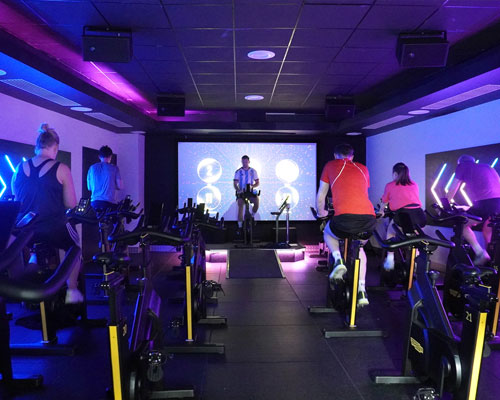features
Activity tracking: Tracking vs retention
Dr Melvyn Hillsdon investigates the impact using activity trackers has on member retention
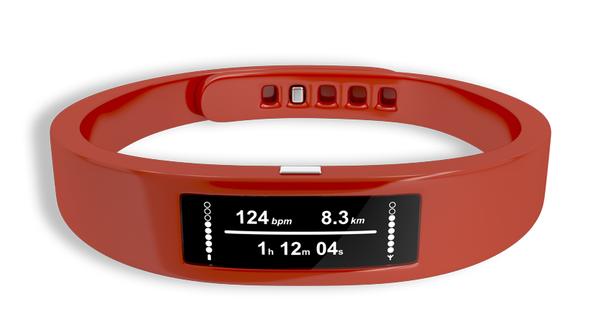
Devices, apps or systems for self-monitoring – tracking physical activity – are becoming very common: among gym members, just over a quarter (27 per cent) say they track their physical activity, with the most common method being a phone-based app.
For the rest of this article, I will use the terms ‘trackers’ and ‘non-trackers’ to differentiate between members who use an app or other technology to track their activity versus those who don’t.
Tracking is more common in members under the age of 25 and gradually reduces with age: members aged 45 years and older are 80 per cent less likely to be trackers than members aged under 25 years.
Males are 20 per cent more likely to be trackers than females, and tracking is most common when members are in the first six to 12 months of their health club membership. Long-standing members and members who are just starting out are least likely to be trackers.
What makes a tracker?
So what are the characteristics of trackers? Overall the differences between trackers and non-trackers are fairly small, but there are a few differences in terms of preferred activities and motivations for exercise.
Trackers are more likely than non-trackers to say their main reason for visiting their club is to take part in:
• A gym workout (82 per cent of trackers vs 72 per cent of non-trackers)
• Group cycling class (16 per cent of trackers vs 11 per cent of non-trackers)
• Personal training session (8 per cent of trackers vs 5 per cent of non-trackers)
However, they’re less likely to visit their club primarily for swimming (24 per cent versus 30 per cent).
The proportion of members who say they usually visit their club for an exercise class (other than cycling), or for non-exercise reasons, doesn’t differ significantly between trackers and non-trackers. The frequency of club visits is also similar across both groups.
The odds of being a tracker rather than a non-tracker are higher if members’ motives for exercise are:
• Wanting to be physically fit (15 per cent higher odds of being a tracker)
• To improve their body shape (17 per cent higher)
• To enjoy the gym (13 per cent higher)
• To look better due to bigger muscles (7 per cent higher)
• To be attractive (6 per cent higher)
Meanwhile, the odds of being a tracker are lower if members’ motives for exercise are:
• To maintain health and wellbeing (16 per cent lower odds of being a tracker)
• To have more energy (9 per cent lower odds of being a tracker)
• To lose weight (7 per cent lower odds)
Other types of motivations don’t differ between groups.
However, even though they’re less likely to exercise specifically to lose weight, more trackers than non-trackers report losing weight (63 per cent vs 51 per cent). Similarly, more trackers will report feeling fitter (91 per cent vs 88 per cent), improving the way they look (78 per cent vs 69 per cent), having more energy (84 per cent vs 79 per cent) and feeling happier (88 per cent vs 84 per cent) and healthier (90 per cent vs 87 per cent).
One key thing to note, however, is that it isn’t currently possible to determine whether members who make good progress choose to track their activity, or whether tracking leads to more progress. This requires additional research.
Impact on retention?
Trackers are 22 per cent more likely to cancel each month compared to non-trackers – equivalent to four extra cancellations a month for every 1,000 members that start the month.
However, taking account of other factors – such as differences in age, gender, length of membership and visit frequency – reduces the increased risk among trackers from 22 per cent to 10 per cent. That is, our research shows that activity tracking per se leads to a 10 per cent increased risk of leaving.
But this varies across different demographic groups. Among younger, male members there was no association between tracking and risk of cancelling, whereas among older male members the risk of cancelling each month was 23 per cent higher in trackers, even when other factors were taken into account.
Among females, there was no relationship between app use and increased risk of cancellation.
So why these differences between genders and ages? It’s possible that middle-aged males who track their exercise have more unrealistic expectations about the changes in their physique and the way they look compared to other members, and when these expectations are not met they may cancel their membership (see briefing, p54). Whatever the reason, with many clubs viewing tracking and the use of wearables as a key retention solution – and indeed as an alternative to staff coaching and feedback – this first study to examine this question suggests a rethink is needed.
More research is now required to build on the results of this study. We need to better understand what it is users of tracking technology are hoping their wearables are doing for them, and how fitness staff can interact with members and their wearables to help people better achieve their goals.
Beware middle-aged men
Trackers are commonly younger males who typically attend their clubs for gym workouts and group cycling classes, who are reasonably experienced gym users, and who are motivated primarily by aesthetic reasons.
The good news is that retention among this group – by far the largest group of members who use activity trackers – is not affected by their use of these trackers. Similarly, according to our research, use of trackers among female members does not have an impact – either negative or positive – on retention.
However, there are user groups where gyms should be more attentive to tracking habits – in particular among middle-aged men, and indeed any males aged over 25. While the additional risk of cancelling remains fairly small among this group, there is nevertheless an increased risk if they track their activity.
It’s possible that, among this group, members who are attracted to self-monitoring their behaviour via apps and wearables are already struggling to maintain an exercise habit that would lead to them achieving their goals. Could it be that the data from the wearables is reinforcing the fact that achieving a regular exercise habit is hard to do, and that – although they’ve made some progress – what’s required to actually achieve their expected outcomes is more than they’d hoped they would have to do? Consequently, they feel disillusioned and contemplate giving up on their membership.
About the author

Dr Melvyn Hillsdon is associate professor of exercise and health at the University of Exeter, where he researches physical activity and population health. Since his landmark retention report in 2001 (Winning the Retention Battle), he has published numerous reports into the determinants of membership retention.



























